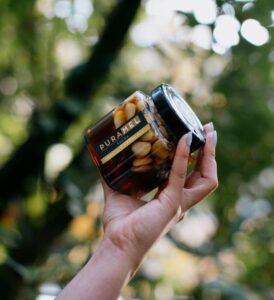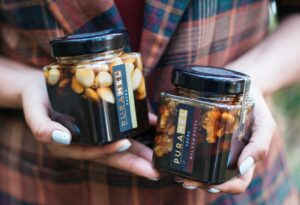
 Respect for the bees is our number one priority, which is why we believe in bio-dynamic apiculture, which respects the natural balance of the hive, feeding off its own honey, allowing the swarming instinct and natural segregation of wax. For four generations we have maintained the same work methods, conscious of the importance of the animal over everything else, by providing the bees with a chemical-free environment and adapting to current technological innovation by using strict controls and traceability for each hive.
Respect for the bees is our number one priority, which is why we believe in bio-dynamic apiculture, which respects the natural balance of the hive, feeding off its own honey, allowing the swarming instinct and natural segregation of wax. For four generations we have maintained the same work methods, conscious of the importance of the animal over everything else, by providing the bees with a chemical-free environment and adapting to current technological innovation by using strict controls and traceability for each hive.
Respecting these natural cycles, without any external intervention and providing the bees with everything they need to remain healthy, we obtain Puramel: A completely natural raw honey, free of any impurity, collected using only the skills passed down from our ancestors, following their methods and production process in order to offer a honey as good as the best ones in the world. No blending, no pasteurising, just cold filtering to maintain all the properties and benefits of the honey, made by native bees that we have bred.
Every year, at the beginning of the autumn, we start testing the honey from our hives, to find out the physical and chemical quality of our honey and see how much we may be able to collect and how much we need to leave for the hive to feed off during the coming winter months. In order to preserve our local system and take care of our bees, each year we sell only a limited amount of honey, which varies according to the flowering and weather conditions that year.

We know that harvesting honey is part of a tradition with its own culture, and we want to continue in that tradition. All this know-how that we have learned from belonging to a bee-keeping family in a land with a long history of honey production, ensuring that the processes involve as little human intervention as possible with the hives and the honey itself, and respect for the bees and their environment make that “little” difference, which makes Puramel so delicious, pure and totally natural.
For us, bee-keeping is a way of life and therefore leads us to ongoing research; from monitoring local flowering to the choice of location for our hives, from the conservation of our local ecosystem to the improvement of our work methods and organic production. The purpose of our work is not just to sell a product, but to create, transmit and respect the culture in which we live and do our part in improving our environment.